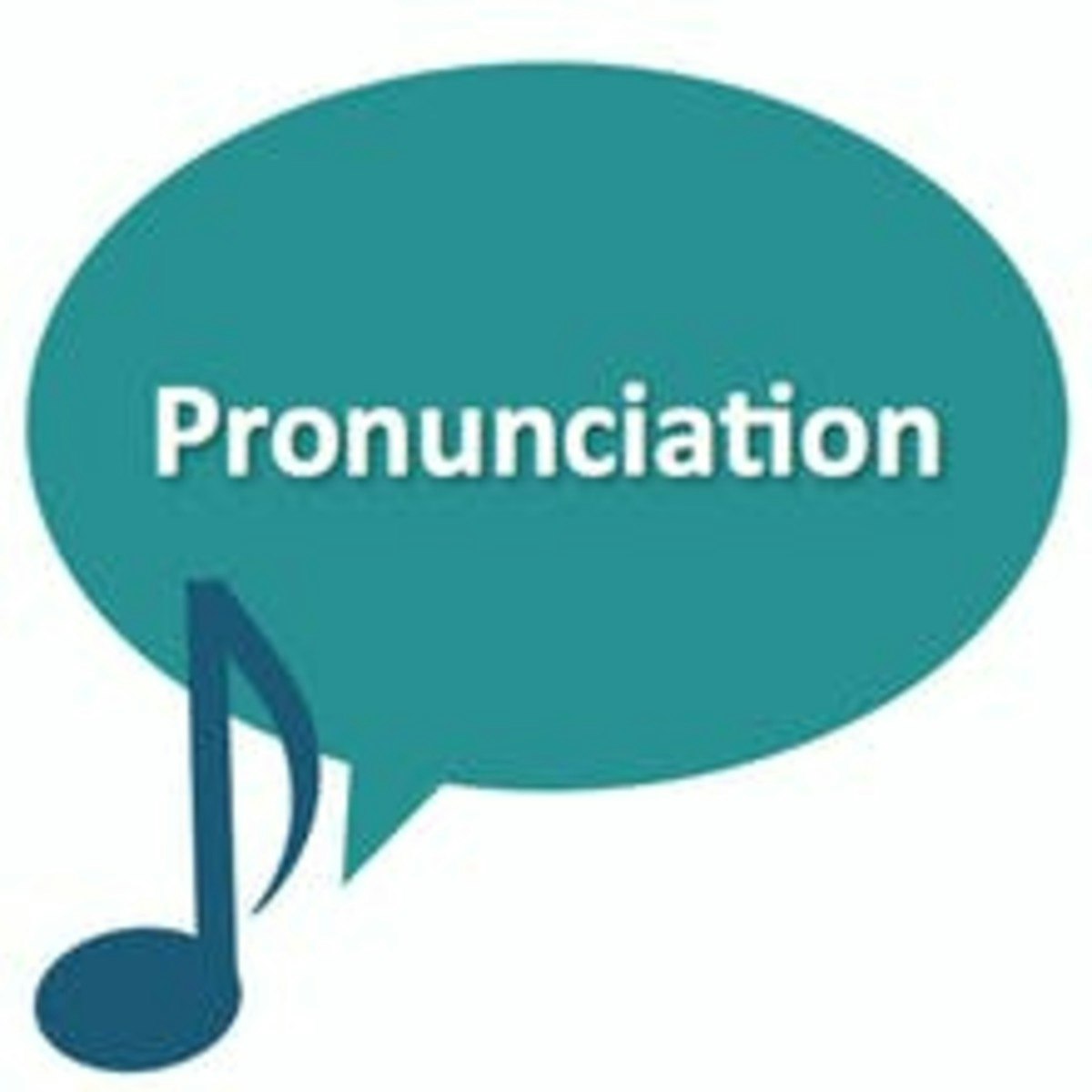Back to Courses









Learning English Courses - Page 6
Showing results 51-60 of 117

American Deaf Culture
This is a six-week course providing a historical overview of the American Deaf community and its evolving culture. Theoretical frameworks from sociology are explored. Deafness as a culture and not a disability is explained as participants are guided into the world of Deaf culture.

The Music of American English Pronunciation
In this third course of The Pronunciation of American English specialization, you will learn and practice the "music" of American English, the features of pronunciation such as stress, rhythm, and intonation that will help improve your listening comprehension as well as your ability to communicate more clearly. Each week you will receive practical advice from successful English learners and practice an effective technique called shadowing to improve your pronunciation of the musical features of English. You will also have opportunities to record yourself and to respond to the recordings of other learners.
Only learners who pay for the course will be able to take the graded quizzes or submit assignments for feedback. The free version provides access to the lectures and practice activities only.

English for Effective Business Writing
This course aims to improve your Business English writing skills by developing your use of vocabulary, grammar, understanding of different business writing genres, and your ability to write professional business documents. Skills learned in this course will be used in the cross-cultural communications course and help prepare you to produce the professional business documents in the Capstone project.
After completing this course, you will be able to:
- write business emails
- write an executive summary
- write persuasively in English
- adapt content to purpose, context and audience
- use appropriate style and tone of writing for business purposes

English and Academic Preparation - Pre-Collegiate
The English and Academic Preparation - Pre-Collegiate non-credit course is for students with a (minimum) high-intermediate level of English. This certificate course is designed to help domestic and international students develop the academic skills necessary for success in undergraduate studies at an American university while strengthening their English proficiency.
Ideally, prospective students have completed or are near completion of a high school diploma in their country and would like to come to the United States to study for a bachelor’s degree.
The total length of time required to complete the course is approximately 4 weeks. Students should expect to spend about 5-7 hours per week working with the materials and assignments.
The course is made up of 4 modules:
• Listening, Speaking, and Critical Thinking
• Writer’s Workshop
• Reading and Note-taking
• Capstone Project
Each module consists of video lessons, opportunities for practicing English and academic skills, interactive discussion boards with classmates, and graded activities. All courses are asynchronous, which means that the lessons and their activities can be completed at any time of day or night, provided that all course assignments are completed by the final day of class.

English for Effective Business Speaking
This course aims to improve your Business English speaking skills by developing your use of vocabulary, grammar, pronunciation, spoken communication skills within a Business context, and your ability to deliver professional business speeches for specific purposes. Skills learned in this course will be used in the cross-cultural communications course and help prepare you to deliver the professional business presentation in the Capstone project.
After completing this course, you will be able to:
- delivery effective job interviews
- give persuasive business pitches
- delivery informative business presentations
- speak persuasively in English
- adapt content to purpose, context and audience
- use appropriate style and tone of writing for business purposes

English for Teaching Purposes
Thinking about teaching your university subject in English but it’s not the Language you normally use?
Then, English for teaching purposes is the course for you. A course on English and teaching methodology that aims to help university lecturers do their teaching in English, in line with university internationalisation policies.
The course structure is the same for all learners and there are opportunities for them to link up with colleagues from universities all over the world who share the same discipline and discourse community, to ask questions and exchange ideas.
This MOOC targets lecturers who wish to begin using English in their teaching. A priori, this means university lecturers from countries where English is not the L1 or a widely-used language (Romance language-speaking countries, for example), though in fact the course is open to teachers from all educational stages who want to teach through English, following the principles of EMI (English Medium Instruction).
On completing the course, you should be able to do the following.
a) Teach a university subject in English, having gained the necessary confidence and skills.
b) Integrate all aspects of CLIL (methodological, pedagogical, strategic, attitudinal, motivational, linguistic, sociolinguistic and pragmatic) to put together their own English-medium course on their particular subject.
c) Describe the characteristics of the university lecture discourse genre (planning, agents, channels, phases, dynamics, and current flexibility of the genre).
d) Understand and perform the basic linguistic macro-functions within English teaching discourse.
e) Understand and perform, using the appropriate linguistic exponents (vocabulary, structures, and phraseology), the main micro-functions in English teaching discourse: metalinguistic, informative, evaluative, inductive, and social.
f) Consolidate their oral expression and interaction skills, and their grammar and vocabulary, at English levels C1 and C2 as defined by the Council of Europe.
English for Teaching Purposes is a course provided by the Language Service at the Universitat Autònoma de Barcelona (UAB).

Business Case Analysis
The Capstone project is the culmination of your journey through the Business English for Non-Native Speakers specialization. It is aimed at applying the written and spoken skills that you have gained to an authentic business situation. You will be able to choose a business case provided by HKUST, or use an example from your own work experience and:
(1) prepare an online video presentation (approx. ½ hour) that analyses the case and provides recommendations, and
(2) prepare a business recommendation report to coincide with the presentation (approx. 2,000 words). The report should include an executive summary, analyses of the case and recommendations.

TOEFL Speaking and Writing Sections Skills Mastery
This course prepares non-native speakers of English to take the speaking and writing sections of the TOEFL iBT exam. This course explains the difference between the integrated tasks and independent tasks in the speaking and writing sections of the iBT and provides effective strategies for tackling each task. For each type of prompt, you will learn how to best plan your responses, which is a key step to providing well-formed and organized answers.
This course also teaches how to best practice and prepare for test day as well as how to manage your time and perform optimally during the exam. With plenty of practice, you will know exactly what to expect when you take the actual test, reducing anxiety and boosting your confidence. Join this course and give yourself the best chance to reach your target scores on the speaking and writing sections of the TOEFL iBT.

Writing and Disseminating Grey Literature
If you are a researcher, academic, student, development sector professional or a practitioner who is keen to reach the research-based knowledge you have created to a wider audience, this course is for you.
Vast amounts of knowledge are produced by educational and research institutions through rigorous research and fieldwork. Yet, there is a dearth of access to this knowledge among non-academic communities (which includes practitioners, policymakers, and citizens) due to the language used. Researchers can bring visibility to grey literature if they engage with alternate public writing forms.
Newer platforms for knowledge dissemination across digital, print, and multimedia channels have made information from grey literature more available and accessible to lay readers. Using formats such as data stories, photo narratives, opinion pieces and infographics, these platforms can help researchers reach a much wider audience when they adopt newer writing techniques.
This course will:
* Provide an overview of data stories, photo narratives, opinion pieces and infographics produced from grey literature
* Teach methods to craft such pieces
* Explain how to pitch to media outlets
* Teach how social media can be leveraged to draw greater visibility to publications

Advanced Interviewing Techniques
People interviewing for jobs today often fail because they are using yesterday's strategies. Recruiting technology has become more sophisticated, and the best employers are constantly changing the way interviews are done. This course gives you detailed strategies for handling tough competency-based, or behavioral, interviews so that you can communicate the knowledge, skills, and abilities that you have and that employers demand.
You will be able to:
1. Identify what the hiring organization is looking for in using behavioral interviewing techniques.
2. List the steps in the S.T.A.R. response strategy and apply the steps, using reasonably correct language, to respond to behavioral interview questions.
3. Use your responses to behavioral and competency-based questions to communicate your personal values.
4. Identify what the hiring organization is looking for in asking situational and wild-card interview questions.
5. List the steps in the P.R.E.P. and 5 W's response strategies and apply the steps, using reasonably correct language, to answer at least one wild-card and two situational interview questions.
6. Develop an optimal strategy for responding to the weaknesses question, based on recognizing why a hiring organization asks these questions.
7. Demonstrate your personal strengths and maturity through your responses to the weaknesses question.
8. Correctly apply hedging language to soften a negative and boosting language to emphasize a positive aspect of your professional and/or academic background.
9. Ask questions to determine how well an organization fits with your personality, career goals and salary objectives.
10. Ask questions that communicate your competencies and strengths.
11. Negotiate the best job offer and compensation package for yourself.
12. Perform successfully on telephone interviews.
Popular Internships and Jobs by Categories
Find Jobs & Internships
Browse
© 2024 BoostGrad | All rights reserved